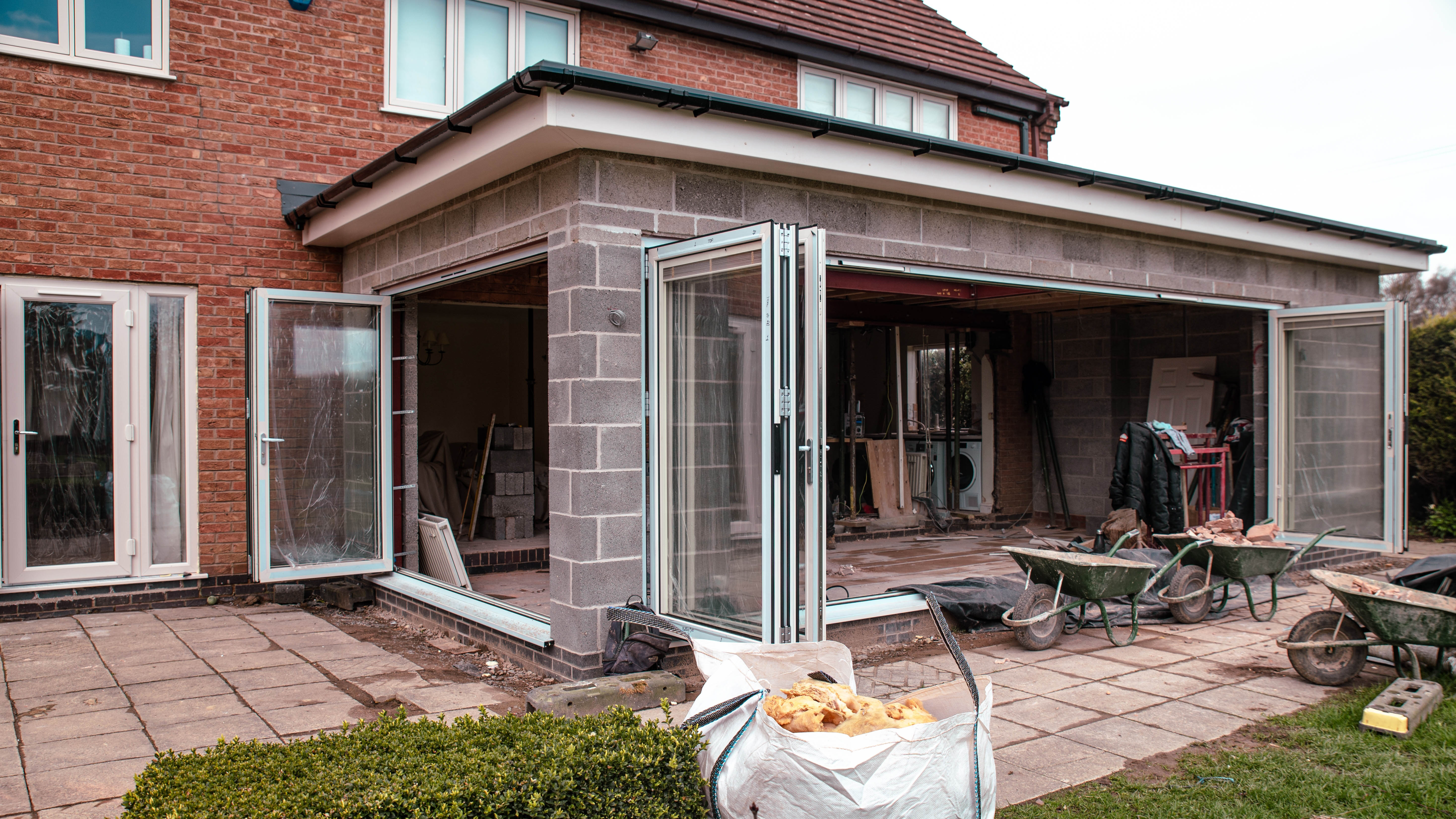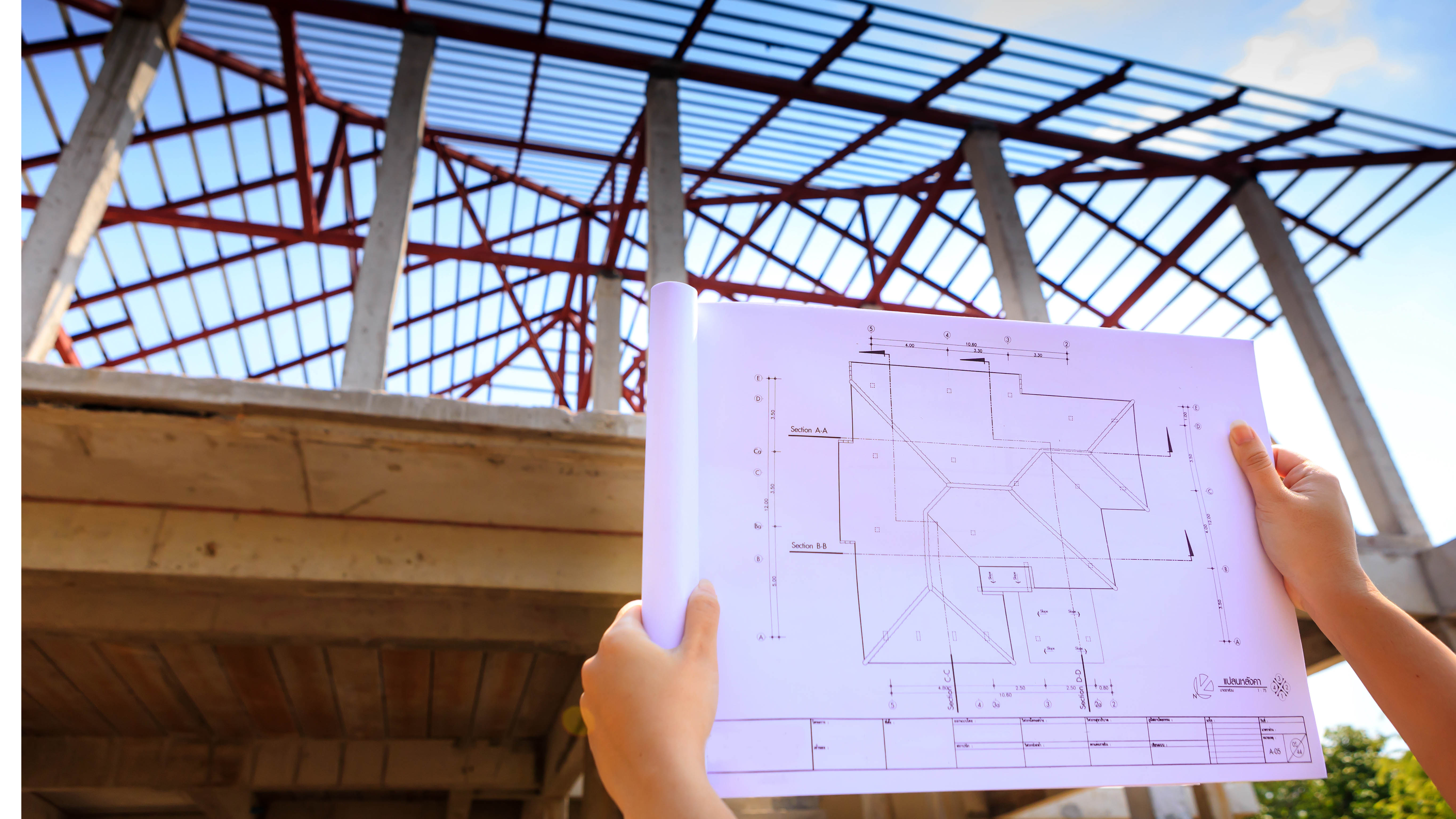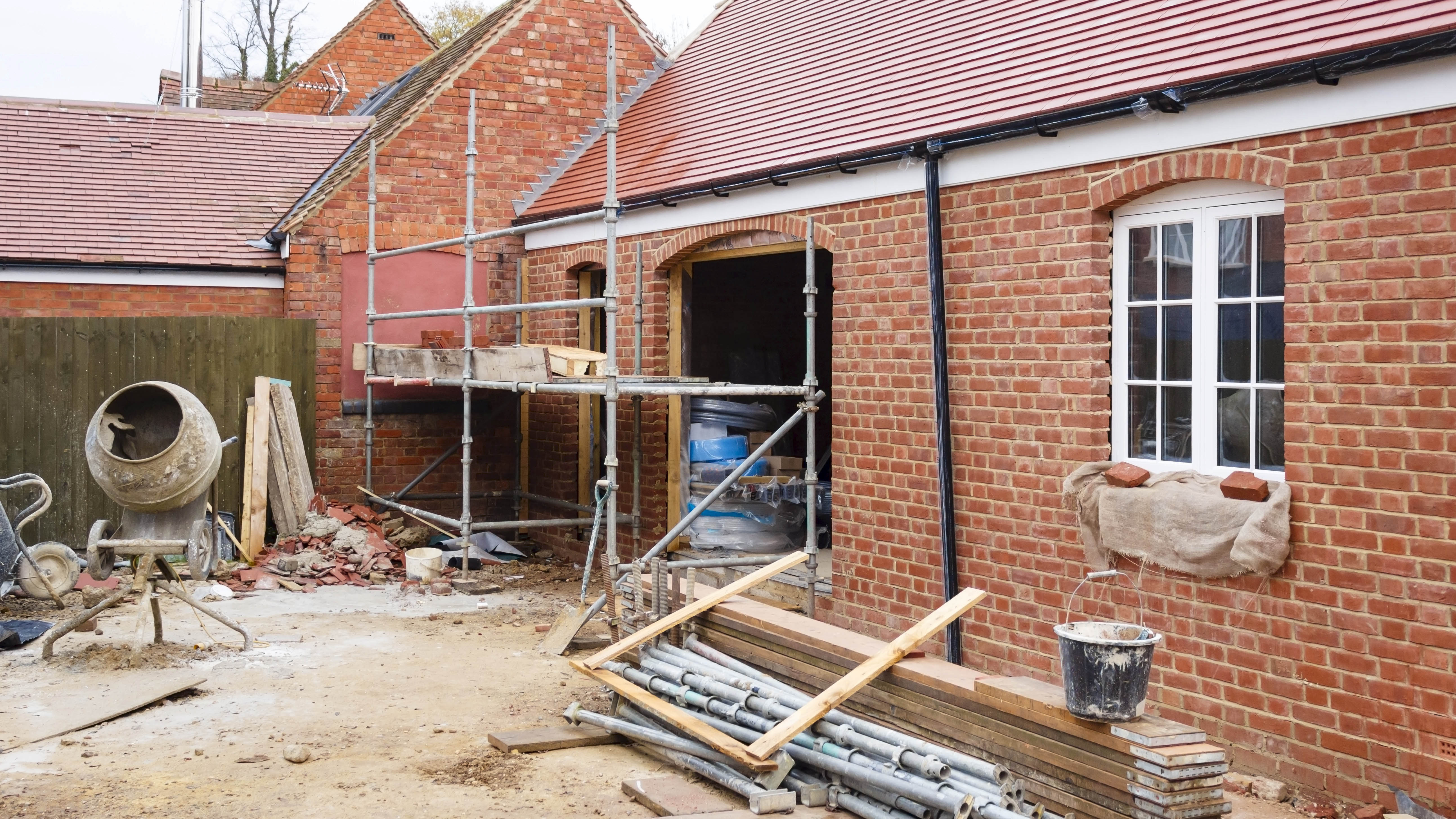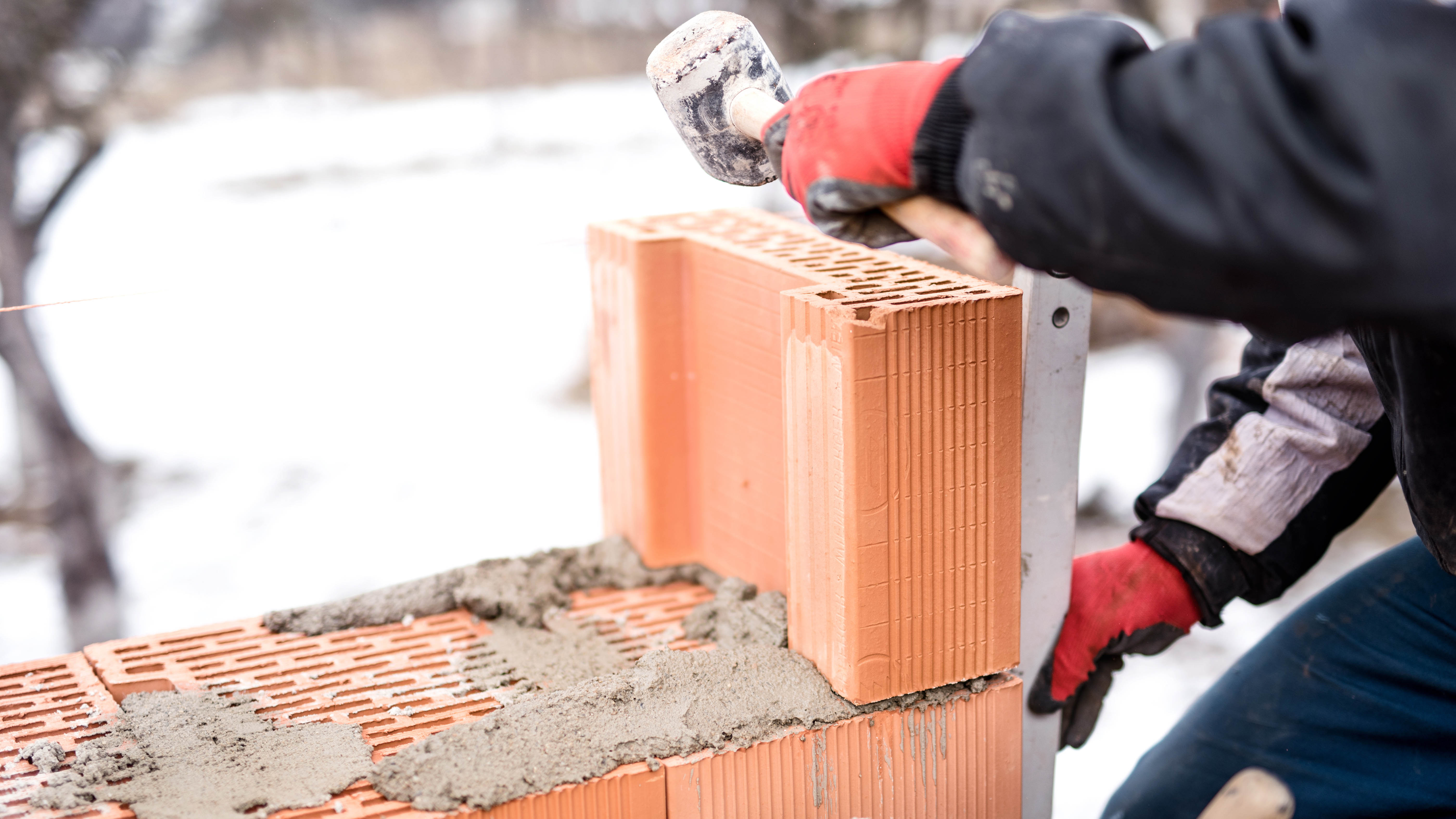5 home extension mistakes to avoid, according to an expert
Here are common home extension mistakes to avoid at all costs

With rising property prices and the higher cost of living, many homeowners are opting to extend their homes instead. Home extensions are the ideal solution for creating more space and customizing it to your needs. It's also far cheaper than buying a bigger house.
Whether it’s extending your living areas, kitchen, or creating an extra bedroom or office space, building an extension can be an exciting project, adding much value to your home.
However, there are common extension mistakes many homeowners are guilty of — especially first-timers embarking on a huge project. Not only can such mistakes cost you time and (unnecessary) money, but they'll cause additional stress. That’s why it’s so important to avoid as many pitfalls as possible before taking on the challenge of a home extension.
Before you start your grand design, consider what we learned by talking to expert Bradley Mackenzie, RICS accredited valuer at chartered surveyors Stokemont, who shared top tips and factors to consider. If you want a smooth and stress-free project, here are 5 home extension mistakes to avoid when building your dream home.
1. You don’t have a detailed plan

One of the most common home extension mistakes is not having a fully-detailed plan. This should be a clear account of what every stage of the project should entail (from start to finish), and will help make the build run a lot smoother.
“It’s key to include as much detail as possible at this stage as every length, width and depth leaves less up to interpretation, allowing you to clearly communicate your vision and expectations to your builders,” Mackenzie said. “Having clear, thoroughly thought-out plans from the get-go leaves much less room for unknowns, which in turn, leads to more accurate budget planning, more efficient scheduling, and overall smoother sailing throughout the duration of the project.”
2. Not sticking to a realistic budget

Another home extension pitfall is not having a realistic budget for the build. You may fancy a luxury extension with high-end materials, but it’s important to always stick within your budget.
Sign up to get the BEST of Tom's Guide direct to your inbox.
Get instant access to breaking news, the hottest reviews, great deals and helpful tips.
“It is important that you thoroughly consider the costs for every element of your extension and be realistic about what you can afford. Sacrifices may need to be made to meet your budget, but it is critical to plan this before work begins,” Mackenzie said
In addition, home extensions are prone to unexpected costs. Whether it’s a price increase in materials, or urgent repairs, make sure you put away some contingency funds (around 10%). This will give yourself a bit of breathing space in the case of an emergency.
“Providing builders with thorough plans upfront will help with accurate estimations, however when issues inevitably arise throughout the process, there needs to be room within your budget to solve them," Mackenzie said. "Be honest with yourself in the planning phase and ensure you are in a position to cover any unexpected costs as they come up, otherwise you could be looking at long delays.”
Similarly, don’t be tempted by the cheapest quotes for builders, as this may impact on the quality of work — costing you more money to repair the damage from poor workmanship. Always look around for an accredited contractor or skilled tradespeople who you can trust to take on your project. Do your research based on their previous work and seek recommendations if possible.
3. Forgetting to research planning permissions

Even if you own your property, you will still have to apply for planning permission if necessary. In some areas, there are strict regulations and guidelines that you must follow. Other factors include the location, size of the extension, whether it’s been extended before and materials.
“It is vital that you do not presume your extension will fall under permitted development rights and that you look carefully at the rules and regulations to find out if you need to apply for planning permission,” agreed MacKenzie. “If you do decide to build under permitted development, there are strict guidelines that your extension must follow, including size, shape, location, and materials. If these restrictions prevent you from building your dream extension, then it may be best to look at applying for planning permission.”
The last thing you want is to spend money on a beautiful extension that you’ll need to pull down or relocate!
4. Not factoring in time of year

Besides having a timeline, another factor we often forget is the time of year. Generally, bad weather conditions during fall or winter months can either delay work or leave you with a freezing space. This is especially the case if you’re planning on living inside the property during the build.
“If at all possible, avoid planning work in the winter as obstacles such as frozen ground and bad weather can cause huge delays, meaning the extension work could leave the rest of the house more vulnerable to the cold," Mackenzie said. "Beginning work in springtime is ideal, especially with bigger projects.”
In addition, don’t be forced to rush the project in order to get everything complete before winter. And if you’re ordering materials, always allow sufficient time for delivery to avoid further delays with the build.
“Discuss estimated time frames with your contractors and plan accordingly. Be realistic with your scheduling; it is important that you aren’t forced to rush or cut corners. If you are taking responsibility for arranging the delivery of materials, be more than generous with the time you allow for things to arrive to ensure that delays in delivery don’t lead to bigger hold ups in the wider project,” Mackenzie said.
5. Not considering the rest of the home

We often get so excited about our new extension, that we forget about how it will impact the rest of the house. Consider how it will impact the overall flow between existing rooms, and functionality. You want to ensure the new extension fits in well with your current design and space, as well as lifestyle.
“This is a mistake that can be made at any point throughout the process of building an extension. In the initial planning phase, it is important to keep in mind how the extension will impact the rest of the house, both now and in the future,” added Mackenzie, “Consider how the needs of the household may change over the months and years, ensuring your extension is planned with this in mind. Throughout the building process, don’t allow the questions and issues that are likely to pop up to distract you from your end goal. Keep your vision in mind with each decision you are required to make, and allow this to keep you motivated and on track.”
By avoiding some of these common mistakes, you’ll have a successful and beautiful home extension to last.
More from Tom's Guide

As the Homes Content Editor, Cynthia Lawrence covers all things homes, interior decorating, and garden-related. She has a wealth of editorial experience testing the latest, ‘must-have’ home appliances, writing buying guides and the handy ‘how to’ features.
Her work has been published in various titles including, T3, Top Ten Reviews, Ideal Home, Real Homes, Livingetc. and House Beautiful, amongst many.
With a rather unhealthy obsession for all things homes and interiors, she also has an interior design blog for style inspiration and savvy storage solutions (get rid of that clutter!). When she’s not testing cool products, she’ll be searching online for more decor ideas to spruce up her family home or looking for a great bargain!
